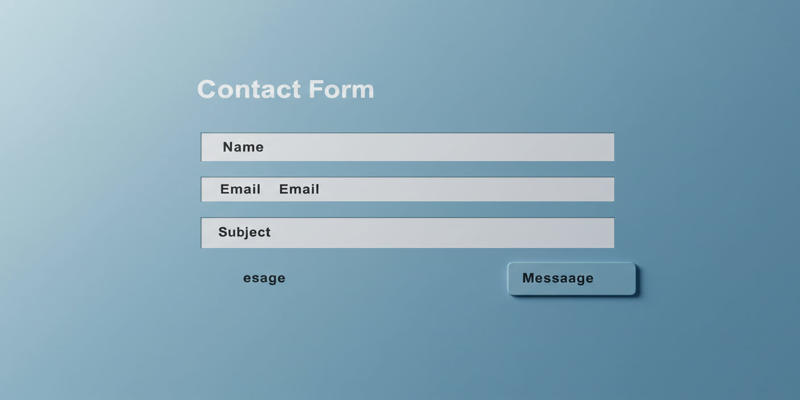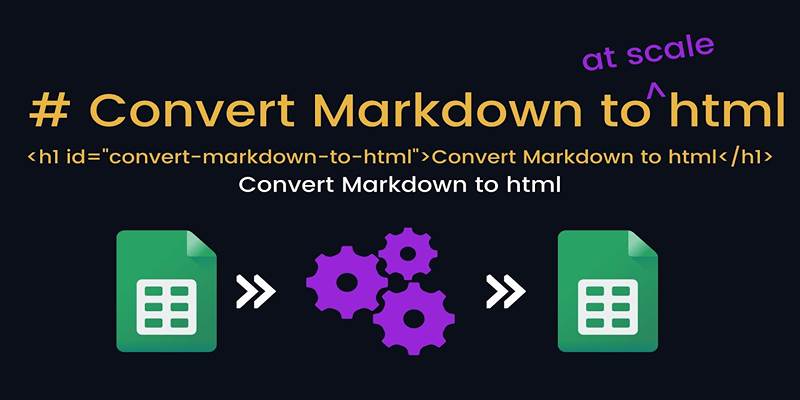Speed Up Contact Form Follow-Ups with Automation
Businesses which operate in the modern digital environment need high speed and maximum efficiency when processing leads derived from contact forms. The timing of automatic follow-ups performs two essential tasks: it enables efficient usage of time while delivering rapid answers to prospects to improve their interaction with your company. This article explores the different available tools for automated contact form follow-ups using logic rules and workflow automation and platform integration capabilities.
Introduction to Contact Form Automation

Any business website depends heavily on contact forms which provide the main communication pathway between companies and prospective customer base. The management of these forms proves to be tedious and inefficient when run manually. Businesses that utilize automation tools guarantee swift responses to every incoming submission which leads to higher lead conversion rates due to shorter response times.
Benefits of Automation
- Automated responses ensure quick feedback delivery that keeps customers confident about their performed inquiries reaching and moving through processing systems.
- Staff efficiency rises thanks to automation which removes workload from manual form processing to enable them work on significant tasks.
- The conversion rate of leads improves because timely follow-ups hold customers' interest in your service offering.
Strategies for Automating Contact Form Follow-Ups
1. Logic Rules and Conditional Logic
The implementation of logic rules which function as conditional logic allows users to produce adaptable forms with automatic responses and adjustments. The system enables users to change their follow-up messages through rules which match certain conditions for delivering the right content to each lead.
Feature | Description | Benefits |
|---|---|---|
Dynamic Forms | Questions appear based on previous answers. | Personalized experience for users. |
Conditional Notifications | Send notifications to specific teams or individuals based on form responses. | Ensures the right person handles each inquiry. |
2. Workflow Automation Tools
Zapier and Mailparser.io function as vital workflow automation tools because they extract data from form submission emails to generate platform-wide actions.
Examples of Workflow Automation:
The system will deliver text messages through SMS automatically toward designated team members after users submit forms.
Form submissions trigger an instant notification delivery to your operational Slack channel.
The CRM system receives an automatic process for new contacts which adds them to its system unless they already exist.
3. Integrations with Power Automate
Power Automate enables users to build automated sequences linking Microsoft Forms with different applications through its previous name Microsoft Flow. Flow automation system allows you to manufacture targeted email communications and launch authorization processes as respondents submit forms.
Power Automate Feature | Description | Benefits |
|---|---|---|
Customized Email Responses | Send personalized emails with form responses. | Enhances user engagement. |
Approval Processes | Automate approval workflows for form submissions. | Streamlines internal processes. |
4. SEO Optimization for Contact Pages
Your contact page SEO optimization will make your business discoverable to possible customers through increased visibility despite automation efforts that maximize operational efficiency.
SEO Tips for Contact Pages:

Your business must show a consistent display of company details which include business name and address and phone number on all presentation platforms.
ContactPage schema allows you to present your business contact information structure to search engines.
Enhance user experience together with SEO performance by adding visual elements which demonstrate your physical business space.
Implementing Automation Tools
Step-by-Step Guide to Setting Up Zapier
The system requires you to make a Zap that includes a form submission trigger alongside an email sending or CRM data updating action.
- Link your form tool through Connect Apps to the targeted app for automation purposes.
- After testing your Zap works correctly you should activate it for active use.
Step-by-Step Guide to Power Automate
Begin by selecting one of the prepared templates for form response email delivery or approval process automation.
- Users should customize the workflow through entering the form identifier and approver email address together with the messaging content.
- After building your flow you should save it before testing the functionality for proper execution.
Advanced Automation Techniques
Using AI for Personalized Responses
Artificial Intelligence systems can join your automation system to develop individualized answers sourced from form information. The process relies on machine learning algorithms to examine user inputs which enables the generation of individualized messages that handle unique requirements or questions.
Benefits of AI-Powered Responses:
AI analyzes user data through which it develops highly customized messages for every interaction.
Efficiency: Automates the process of crafting unique responses for each user.
A sufficient system scale enables the processing of numerous form entries while upholding personalization standards.
Integrating with CRM Systems
The automated system that merges contact form information into CRM platforms ensures complete follow-up of every lead acquired through the forms. The joint system enables a unified database management of customer contacts which improves relationship management capabilities.
CRM Integration Benefits:
The system maintains a single repository for storing every customer interaction under one centralized database.
The CRM system gains new lead entries via an automated process.
Enhanced Customer Insights: Provides a comprehensive view of customer interactions.
Case Studies: Successful Automation Implementations
Example 1: E-commerce Website
The website used Zapier to establish automated follow-up system for clients who stopped shopping before completing their purchase. Personalized reminder and offer communications from the system produced substantial increases in the number of finished purchases.
Key Takeaways:
Automated reminders through the system helped companies stay in touch with potential clients speedily for reengagement.
The system provided customized offers which depended on cart contents.
Example 2: Service-Based Business
The service-based business utilized Power Automate for automated new lead assignment to sales representatives. The proper allocation of leads to specific representatives through this system allowed quick response time from the right staff member thus boosting conversion numbers.
Key Takeaways:
Lead distribution operated efficiently because the system automatically used pre-established guidelines.
The system guaranteed leads would obtain swift replies through its design structure.
Best Practices for Automation
1. Test Thoroughly
Measurements should validate automation workflows before their deployment to verify correct functionality. Testing the automated workflow system requires a review for both logic rules and workflow triggers accuracy.
2. Monitor Performance
You should continuously track the operation of your automation workflows. The performance monitoring includes measuring response durations together with conversion rate performance and user interaction indicators.
3. Continuously Optimize
You should optimize your workflows based on performance data that you collect regularly. Staff members should evaluate logic rules and the timing of automated responses to achieve optimal performance.
Conclusion
Implementing automated contact form follow-ups serves as a major strategic improvement that combines better customer satisfaction with enhanced operational efficiency. A combination of logic rules together with workflow automation tools and Power Automate integration allows businesses to provide timely personalized responses for every inquiry. The optimization of contact pages for SEO leads to better accessibility which increases the performance of these forms when attracting potential customers.
On this page
Introduction to Contact Form Automation Benefits of Automation 1. Logic Rules and Conditional Logic 2. Workflow Automation Tools Examples of Workflow Automation: 3. Integrations with Power Automate 4. SEO Optimization for Contact Pages SEO Tips for Contact Pages: Implementing Automation Tools Step-by-Step Guide to Setting Up Zapier Step-by-Step Guide to Power Automate Advanced Automation Techniques Using AI for Personalized Responses Benefits of AI-Powered Responses: Efficiency: Automates the process of crafting unique responses for each user. Integrating with CRM Systems CRM Integration Benefits: Case Studies: Successful Automation Implementations Example 1: E-commerce Website Key Takeaways: Example 2: Service-Based Business Key Takeaways: Best Practices for Automation 1. Test Thoroughly 2. Monitor Performance 3. Continuously Optimize ConclusionRelated Articles

Which Are The 8 Best Database-Powered App Builders for Seamless Development

Choosing the Right App Builder for Your Needs

How to Move the Dock on Your Mac to a Second Monitor: A Step-by-Step Guide

How to Convert HEIC to JPEG Online Without Extra Apps or Programs

The Best Slack Apps for Your Workspace in 2025: An Ultimate Guide

Solving Grammarly Issues in Google Docs: Quick and Simple Fixes

Best Markdown Converter Tools Bloggers Should Try for Easy Formatting

Top 10 WordPress Plugins for Collecting User Feedback

Usability Testing Simplified: 8 Must-Have Tools for 2025

How to Convert MPEG to WAV: A Step-By-Step Guide

Best Screen Sharing Software for Remote Teams in 2025: A Comprehensive Guide

 knacksnews
knacksnews